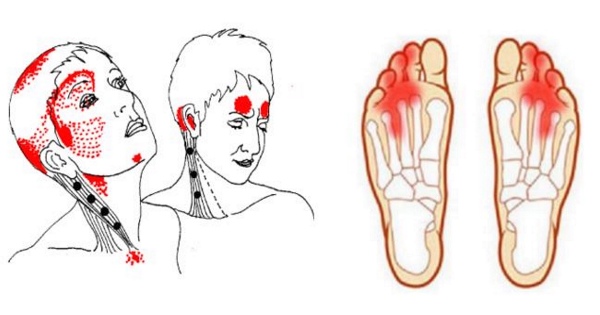Therefore, it is of utmost importance to learn the warning signs of vitamin B12 deficiency in the body, in order to be able to prevent serious health issues.
These are the most common signs of vitamin B12 deficiency:
- Fatigue
- Dizziness
- Muscle weakness
- Eye Issues
- Forgetfulness
- Pale skin
- Pins and needles
- Joint pain
- Breathing difficulties
- Mood changes, like increased depression and anxiety
- Abnormal heart problems
- Poor dental health
- Digestive problems such as nausea, diarrhea or cramping
- A poor appetite
- Poor memory
- Inability to concentrate
To correct it, and optimize the levels of this vitamin in the body, you should increase the intake of foods rich in Vitamin B12, like:
- Chicken and beef liver – 81 mg in 3 oz
- Lamb – 0.8 mg in 3 oz
- Salmon – 19.5 mg in one filet or 108 g
- Tuna – 9.3 mg in 3 oz
- Herring – 18.7 mg in one filet or 143 g
- Mackerel – 15.3 mg in 3 oz
- Sardines – 13.3 mg in one cup
- Beef tenderloin – 0.9 mg in 3 oz
- Raw milk – 1 mg in 1 cup
- Trout – 9.1 mg in one fillet
- Turkey – 1.1. mg in 3 oz
Here are some non-vegan sources of vitamin B12:
- Cheese
- Plant-based milk – coconut milk, almond milk, and soymilk
- Nutritional yeasts
- cereals
These are the guidelines by the NIH for the Recommended Dietary Allowance (RDA) for vitamin B12:
- Infants 0–6 months: 0.4 micrograms
- Infants 7–12 months: 0.5 micrograms
- Toddlers 1–3 years: 0.9 micrograms
- Children 4–8 years: 1.2 micrograms
- Children 9–13 years: 1.8 micrograms
- Adult men and women over age 14: 2.4 micrograms
- Pregnant women: 2.6 micrograms
- Breastfeeding mothers: 2.8micrograms

